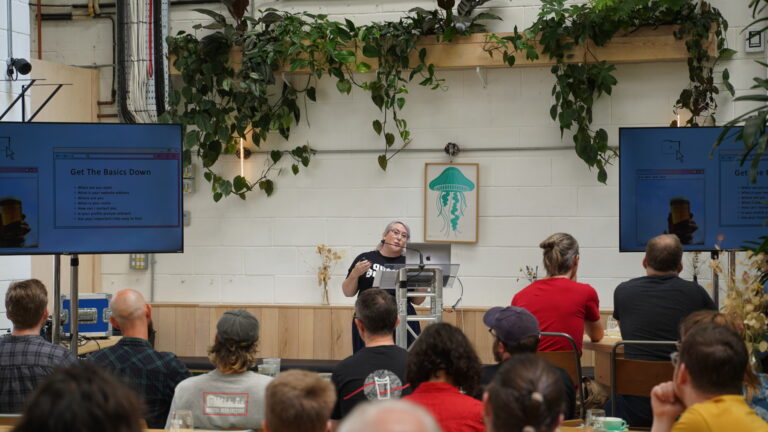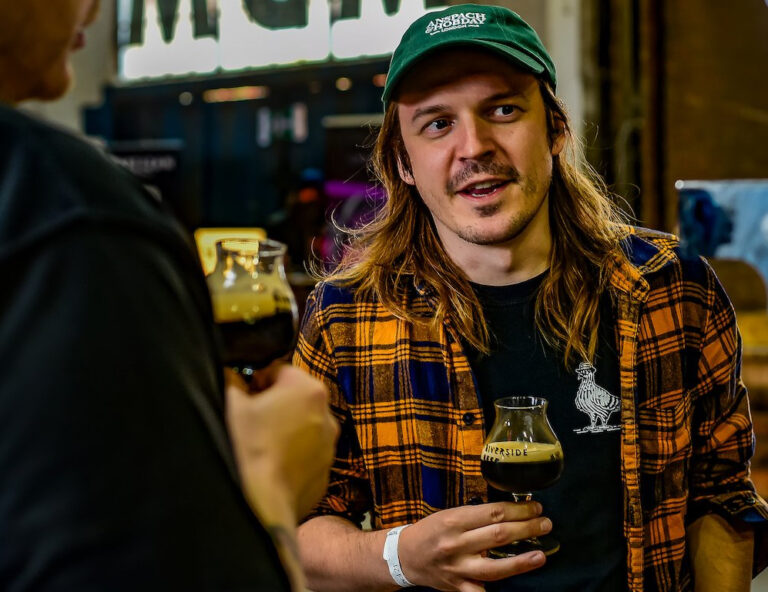Being able to mark your 30th anniversary in the world of brewing doesn’t happen by accident and Rooster’s Brewing Co of Harrogate remain one of the UK’s most regarded and respected breweries for very good reason. Photography: Mark Newton
Where were you a little over 30 years ago? England had failed to qualify for the World Cup, 2 Unlimited were Top of the Pops, Shane Warne had bowled the ‘Ball of the Century’ and Rooster’s Brewing Co has just hatched. And in doing so, forever changing the shape of beer in the UK.
Though they’d be too modest to admit, they were originators and innovators of quality and new world pale ales. Rooster’s beers, then brewed by original founder Sean Franklin, were starting to stand out and turn heads amongst a sea of brown beer, with flagship pale ale Yankee leading the way. And a little more than 30 years on, Rooster’s Brewing Co of Harrogate are still going strong.
A brewery known for quality, consistency and approachability, their beers are reaching a new generation of drinkers. Be that in the wild, their fantastic taproom space in North Yorkshire, or anywhere in-between. And thankfully in 2024, cliché or not, they are showing no signs of slowing down, either.
To welcome in the new year, Rooster’s announced that it was ramping up its limited release offering, with close to 50 different beers scheduled for production in addition to their year-round core range.
The Harrogate brewery mapped out their brewing schedule for the twelve months ahead, which includes several new recipes, the return of a few old favourites from the archives and a series of collaborations with some of the UK’s most highly-regarded breweries.
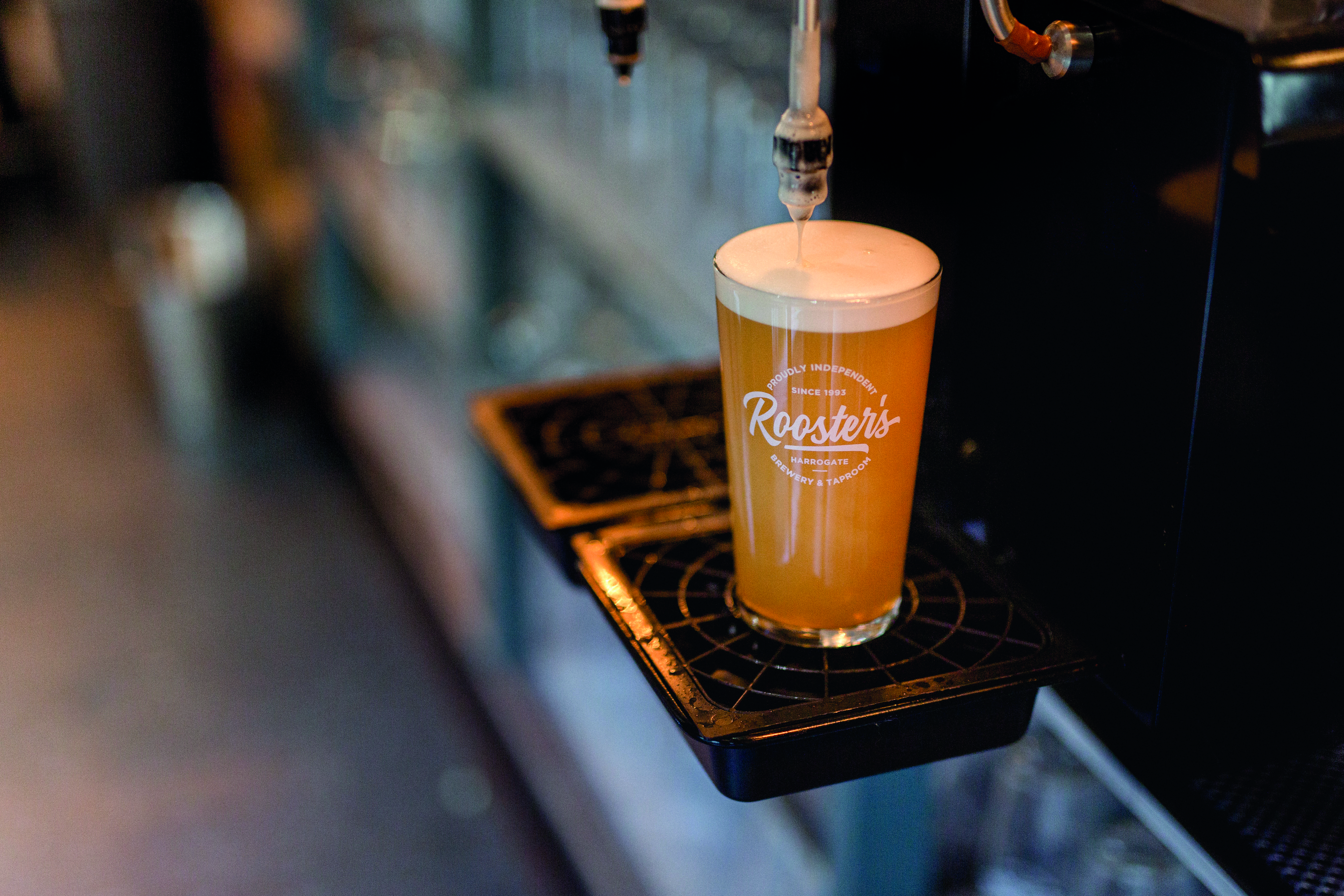
So what better time then to catch-up with Tom Fozard, the brewery’s commercial director, to discuss the plans for this year. We look back on the impact and influence that Rooster’s founder Sean Franklin has had on the UK brewing industry, and also the way that Tom and his family have helped Rooster’s evolve since taking on the business back in 2011.
But sticking with the modern day, and to kick-start the year, Rooster’s released no fewer than six limited-edition beers, an approach they’ve continued as we enter the mid-point of the year.
Among those earlier releases were Sleep Is For The Week (a 5.8% breakfast stout), Volstead (a 4.4%, gluten free pre-prohibition American lager) and Democracy Manifest (a 3.6%, cask-only U.S. pale ale), brewed in collaboration with Lakes Brew Co. Other collaborations taking place this year include those with SALT, Fyne Ales, Thornbridge, Brew York and Siren.
And Spring marked the start of another year in the story of a brewing staple. Not just in Yorkshire but the UK as a whole. And a new chapter for a beer business some 30+ years young can be no accident. But for Fozard and his family, they will always respect and acknowledge the formative work of founder Sean Franklin.
“If you go back to day one, when the brewery was founded by Sean, the real magic ingredient he had was his background in winemaking. And once he realised he wasn’t going to be a winemaker for a living, he wanted a way of expressing what he’d learned and understood about grapes, and recognised that that similarity exists with hops,” explains Tom.
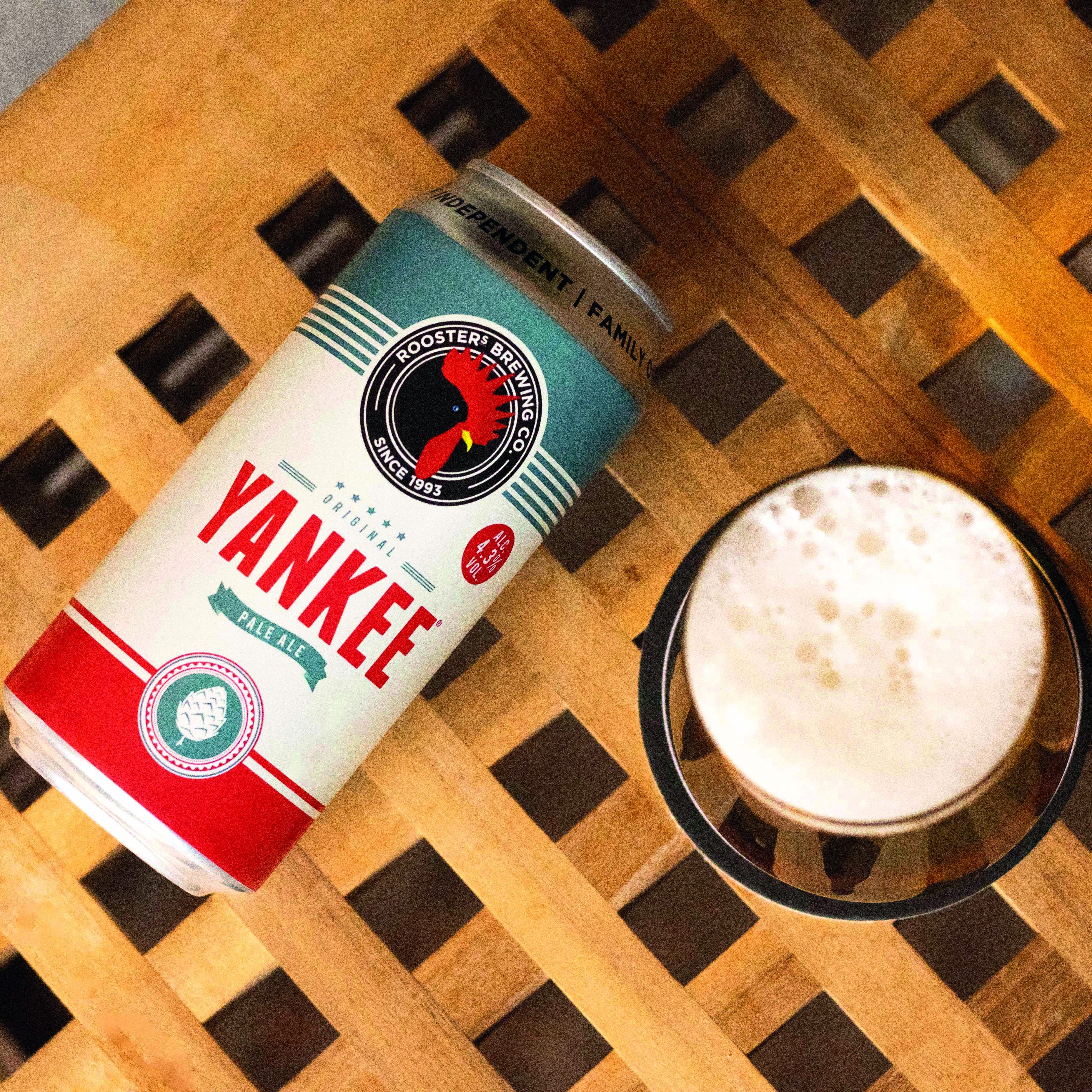
Before Rooster’s came to be, Sean was already experimenting with hops at his first brewery – Franklin’s. Located in Bilton, North Yorkshire, brewing commenced at the start of 1980 with Sean hearing about the emergence of beers such as Sierra Nevada Pale Ale in California around the same time.
“Sean tried to have some with fun with these beers in the 1980s but to be pretty direct, the market wasn’t really there. So a good few years later he would give it another go and set up Rooster’s,” recalls Tom.
Being a mere 11 years old when Rooster’s came to be in 1993, Tom wasn’t au fait with the liquid itself but looking back, and being local to the brewery he would recall a sea of brown beer with Sean instead leading the way with that focus on American hops and in particular, Cascade. A hop that features in the brewery’s flagship Pale Ale – Yankee.
Coming in at 4.3%, It was one of the original, new-style, pale ales to be brewed in the UK – Yankee is a modern classic. Light and easy-drinking, it’s a beer that showcases the floral and citrus fruit aromas of the Cascade hop, grown in the Yakima Valley in Washington State, USA, projected against a back drop of soft Yorkshire water and Golden Promise pale malt.
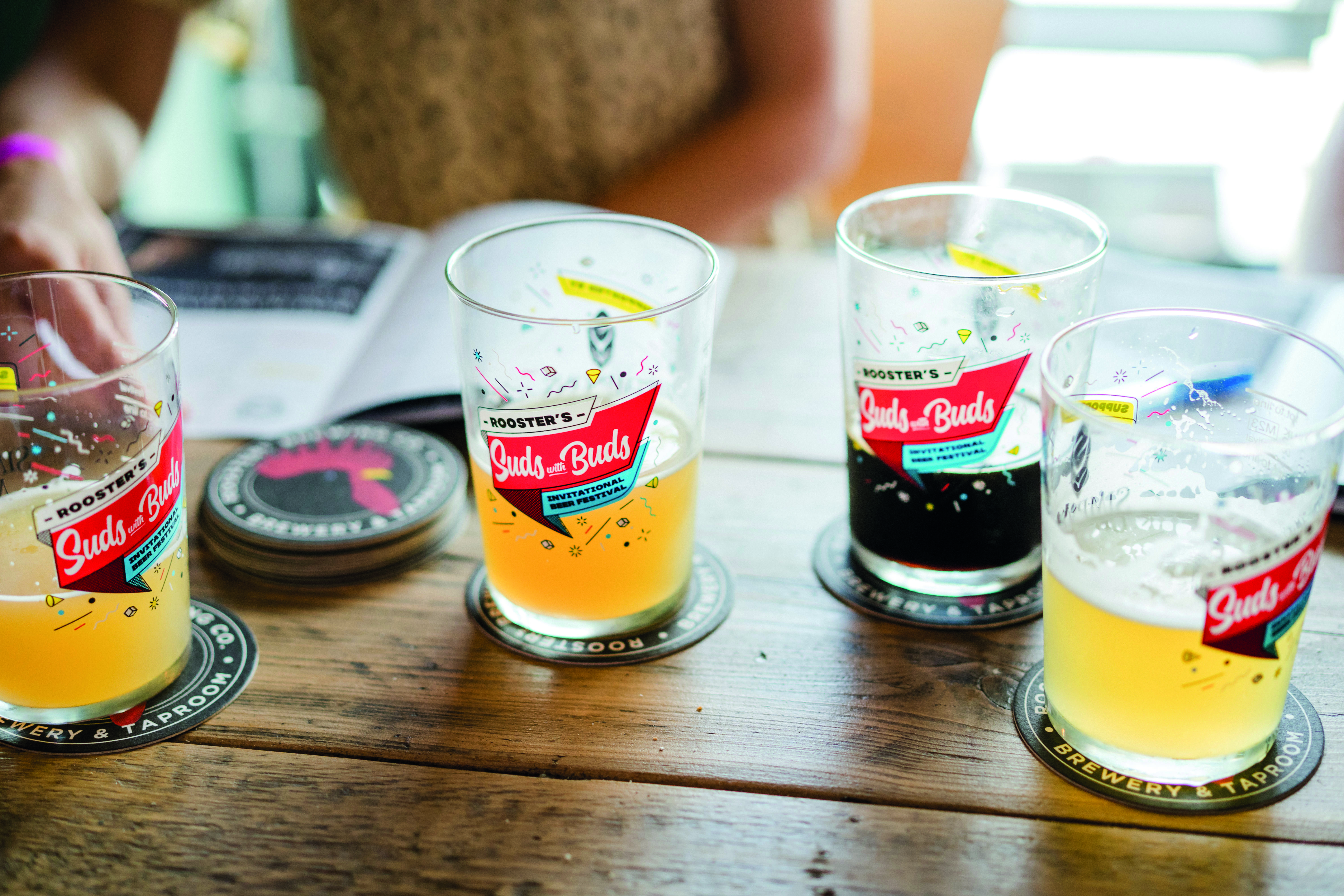
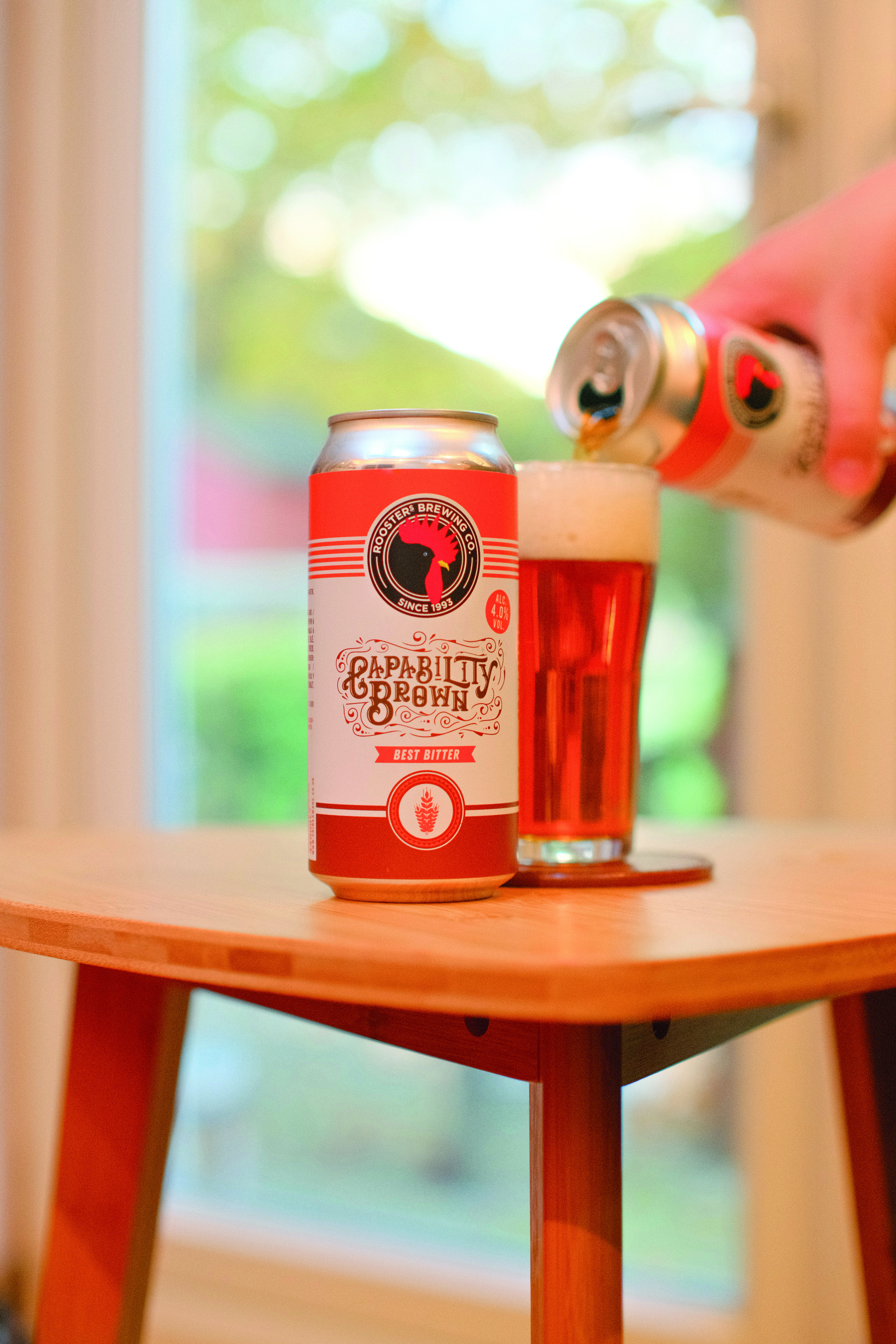
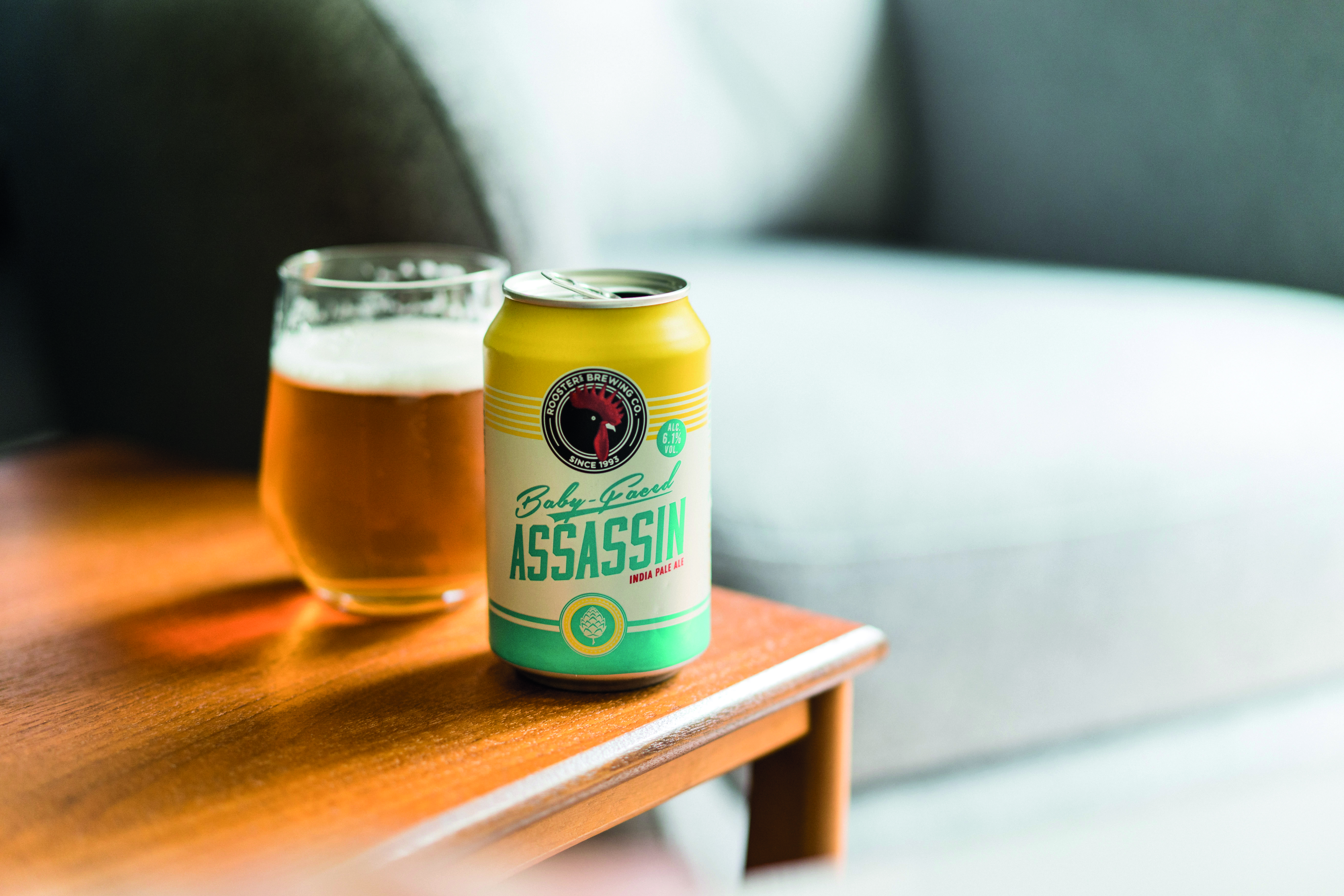
“Sean really broke the mould with Yankee,” says Tom. “He worked directly with farmers in the US because there simply wasn’t the availability over here. Hop merchants were, understandably, focused on English varieties in particular.
“It took him considerable time to convince people of what this beer was and why it tasted the way it did. Sean and Yankee were the definition of experimentation. He stripped back that beer to really allow the hops to express themselves.”
While Sean Franklin admired and was inspired by the early stages of the US craft beer movement, his creations have gone on to inspire others, too. But while beers like Yankee are something of a household name for many beer fans, Tom feels that Rooster’s remains something of a well-kept secret.
“This is a lovely, friendly industry to be involved with, and we do get quite a lot of people come up to us and express their respect for the brewery and how it made them want to start brewing themselves,” he says. “And obviously my brother and I can’t take credit for that! But it shows that we have a solid reputation. I think people respect that we’ve remained committed to creating consistent, drinkable beers.
“But I think, you know, on a commercial level, despite the success we’ve had and the progress we’ve made, it definitely feels like we’re still a little bit too much of a well-kept secret. Maybe we need to push ourselves out there a little more. I guess that comes with being an established brewery within a fast-paced, challenging market.
“There are always shiny new beer styles coming out left, right and centre. People want to explore new things, and that’s understandable. But we’ll continue doing what we do best, too.”
Lots has, predictably, changed, in the three decades Rooster’s has been in business. A business now owned and run by Tom, his brother Oliver and their father Ian. Before the opportunity to take on Rooster’s arose, Tom would pursue a career in journalism while Oliver worked at breweries such as Daleside of Harrogate, a brewery that Rooster’s recently acquired earlier this year.
“The financial crash of 2009 meant I lost my job in publishing and I found myself working at a local bar. And before long, I discovered homebrewing. A good brewer is often described as being something of an artist and a scientist combined. I was definitely neither of those. To be honest, I don’t know what I was. But I enjoyed it and got carried away with it.”
Tom’s love of beers, especially US numbers such as those from Odell, Dogfish Head and Stone Brewing, would develop further when working at a local bottleshop and he would soon hatch a plan with a close friend to open up a brewery of their own.
“We started working on a business plan but soon decided this wasn’t going to go anywhere. So I put the business plan to my dad and basically said, ‘What do you think of this?’”.
Fozard adds: “I was looking for a steer in the right direction. He looked at it, laughed and effectively said it was rubbish! But what I didn’t realise at the time was that, even though my brother and I were close, he was getting bored working where he was and that he had also approached our dad for some careers advice.
“Neither of us knew that our dad was ready to sell a small group of pubs that he had built up with a consortium. We found ourselves in a position where Oliver and I wanted to do more work in the industry with a dad who wasn’t ready to just sit back and be bored.
“So we started working on a plan to open our own brewery and about six months into that process Sean Franklin got in touch and said he was ready to retire and if we’d be interested in taking Rooster’s on – and that was it!”
And since taking on the business with their father Ian, Tom and Oliver have successfully built on Rooster’s foundations with the beers they’ve brewed. But in the very early days, they were very firm on their desire to act as caretakers for such a beloved local business.
“The first thing that we did was spend seven months working side-by-side with Sean, while due diligence was going on. It served as a really good handover period. While Oliver had been brewing for some 10 years at that point, he was still able to learn a great deal with Sean,” he explains.
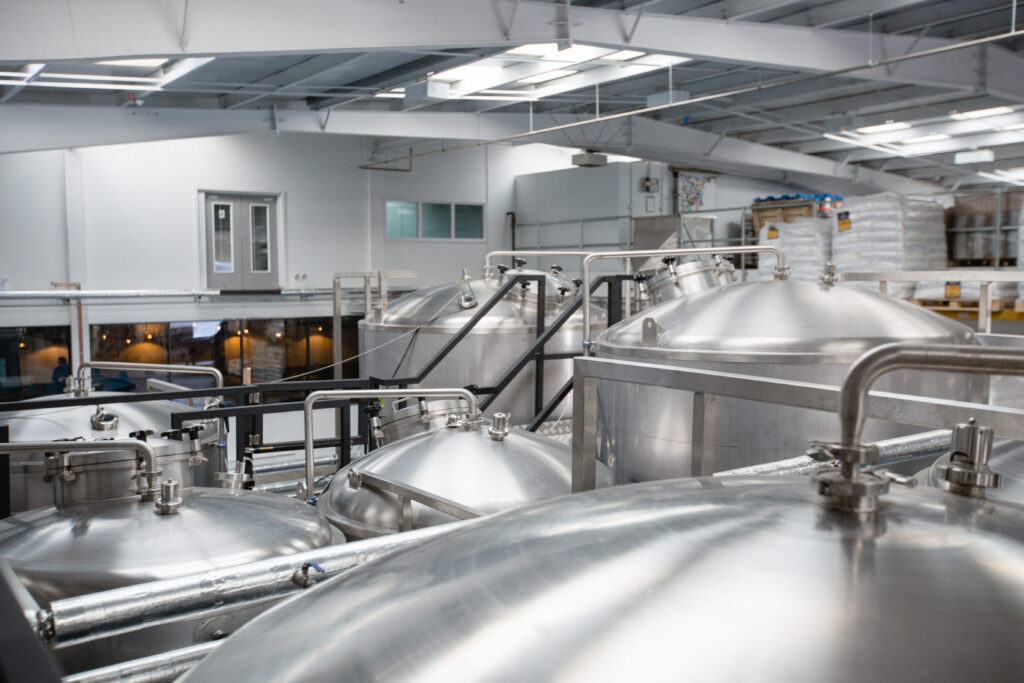
“We also knew that beer such as Yankee were so highly regarded. There was no way we were going to come in and drastically change things and turn things into ‘The Fozard Brewing Company’ or whatever. We were there to build on the great work Sean had already carried out.
“And because Sean had won three back- to-back medals at the World Beer Cup in the US, he and the brewery had a great reputation overseas. So we’d often have calls from Americans who were visiting and wanted to visit us. But on the flipside, there were people living in a three-mile radius of the brewery that didn’t know we existed….”
Central in those early days, and something that has continued in the years since, was building upon the Rooster’s Brewing Co reputation while also putting the team’s own stamp, their own identity on things.
“When it comes to Rooster’s and the way my brother and I approach things, I feel that we are somewhat of a mix. And that’s a good thing,” he says.
“His passion is consistency in the beers we brew and we meet in the middle with how we honour and respect the history of this brewery. I’m probably a little bit more out there, always throwing ideas around. But at the end of the day, he’s the one to actually turn this ideas into beers that people enjoy and want to drink.”
While the last 12 or so years have no doubt flown by, that time has seen the team grow and evolve Rooster’s into a completely different proposition. And that has included moving facility, updating its kit and opening a taproom that can welcome an ever-increasing number of visitors. Much has changed since the team that inherited that cask-only business in nearby Knaresborough.
“When Sean found the land the brewery would start out on, his landlord told him he had a prefab building available lying in a nearby field. It was also something he could put up for him. And I’ll be honest, when we first saw how the flooring was laid, I felt it had to be someone’s first attempt or they were p*ssed when they did it!” laughs Fozard.
“I suppose ramshackle is the best way to describe it. But it was also home to the brewery during Sean’s greatest successes in terms of the beers he was producing, too.”
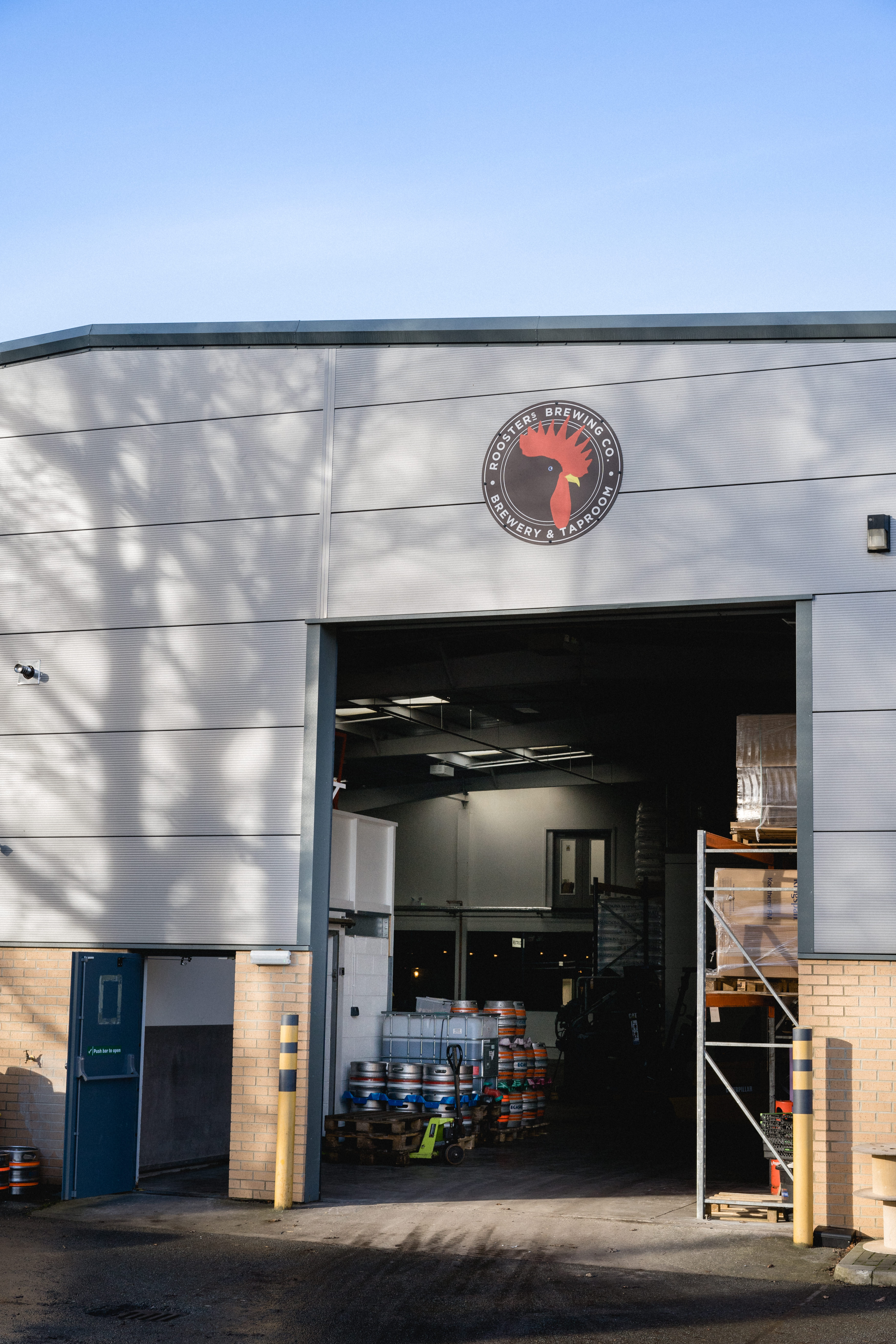
A few years after really “getting their feet under the table” Rooster’s would invest in their own canning line at the start of 2014. “Breweries such as Fourpure, Camden and Beavertown all installed theirs a few months earlier but outside of London we were really the first of our scale to do so.
“The decision to do that in such a premises really stretched us. It was like working with a giant puzzle where you have to move one piece to make space for another. You’d often spend an hour moving stuff out of the brewery just to make space. It was manageable but it was painful.”
Rooster’s would soon reach a point where the team felt it was unable to capitalise on certain opportunities coming their way, and unable to concentrate on growing. So they set about looking at new premises for the business. In searching Harrogate for their new forever home, a lack of suitable industrial properties threatened to hinder this pursuit.
“Harrogate is a lovely area but not one built on industry of that kind,” says Tom. However, one ideal spot did exist. Hornbeam Park, located several miles south of Harrogate Town centre, simply “screamed perfect location” but it was financially out of their reach.
That was until the landlord informed the trio that its break clause had been activated and subsequently was available. Despite some hesitations from father Ian, with the premises been three times larger than their original site, a deal was struck and they had the keys at the start of 2019.

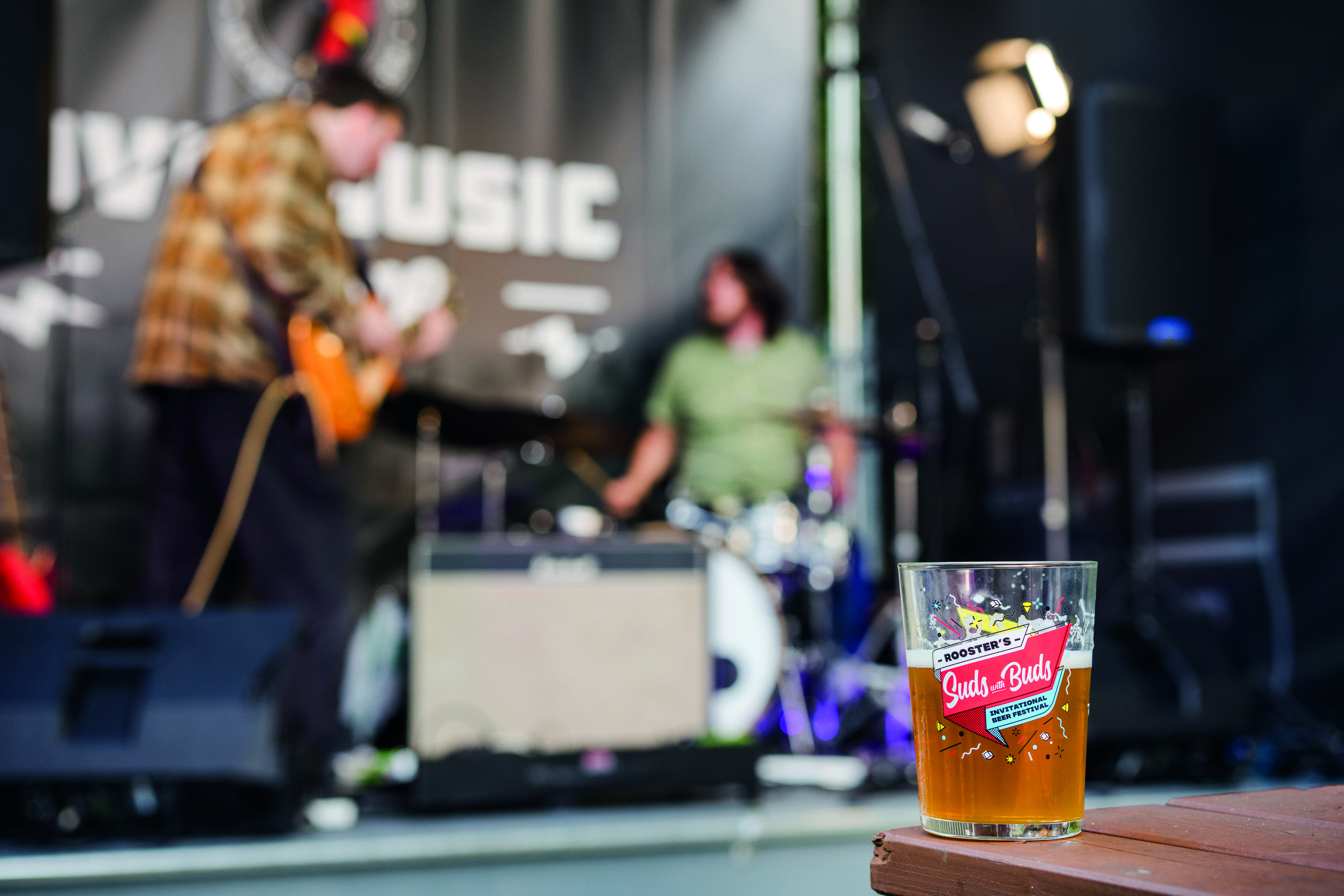
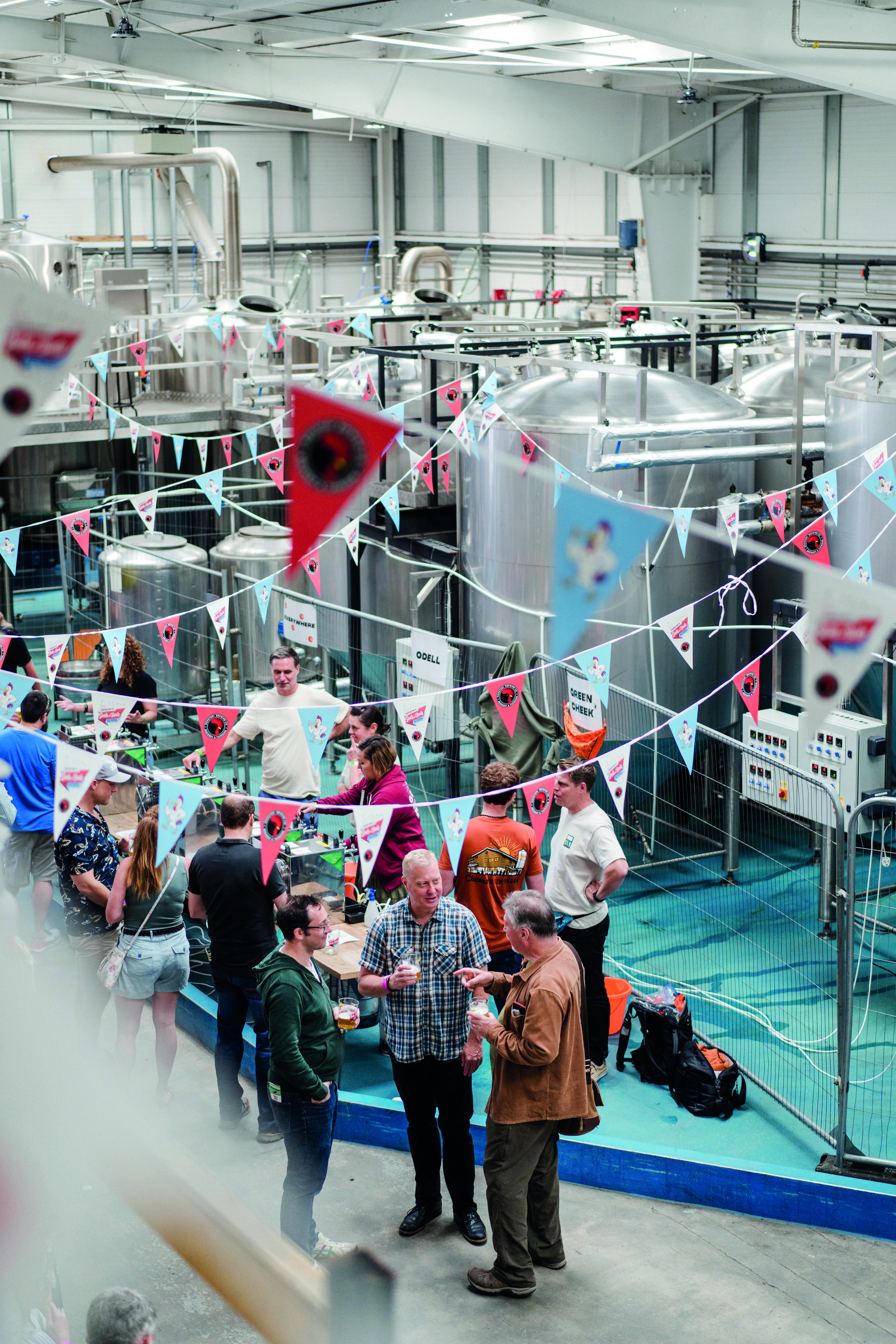
In the years since, not only has it become home for the brewery but also for its ever-popular taproom. This has been an integral part of the Rooster’s offering, seating up to 160 indoors and more than 100 outside. There’s also a private events space, too.
“Before we found this building, I drew up plans for three types of taprooms with option C being a temporary bar and us moving some malt pallets out of the way on a Friday night,” says Tom.
“But instead we now have somewhere with quite a large proportion of the premises is dedicated to the taproom and we couldn’t be happier. The private events space has also been really important for us. I recall Rich (Burhouse) when he was still at Magic Rock explaining how he wished they had somewhere they could hire out.
“Often they’d be approached by people wanting to spend a lot of money to have the space exclusively but he would always decline because he didn’t want to upset the regulars. It was never worth the risk.”
But for Tom, Oliver and the rest of the team at Rooster’s, that ability to entertain and delight is very much high on the agenda for 2024 and beyond. And a busy beer release schedule, and events to enjoy those at, is key to that. In addition to a raft of new beers, its popular Suds With Buds invitational beer festival returns in 2024, too.
“It’s something we wanted to do ever since we moved to this site. We’re really pleased with how it went last year and we’re looking forward to going again,” says Tom.
“Being able to welcome people here, to see and hear people enjoying our beers and to have a good time while doing so is massively important to us. We always want that to be the case and really hope it will be.”








